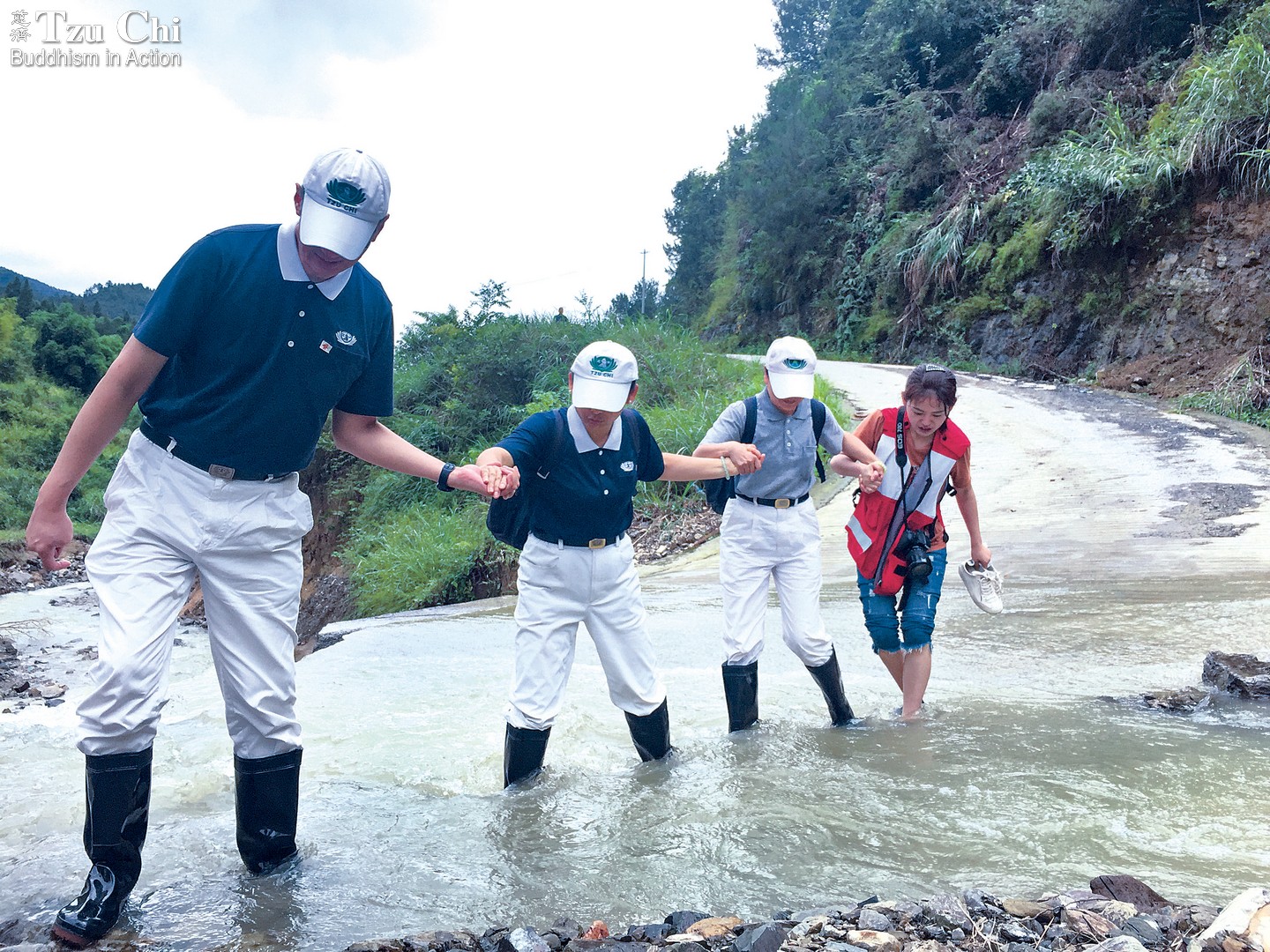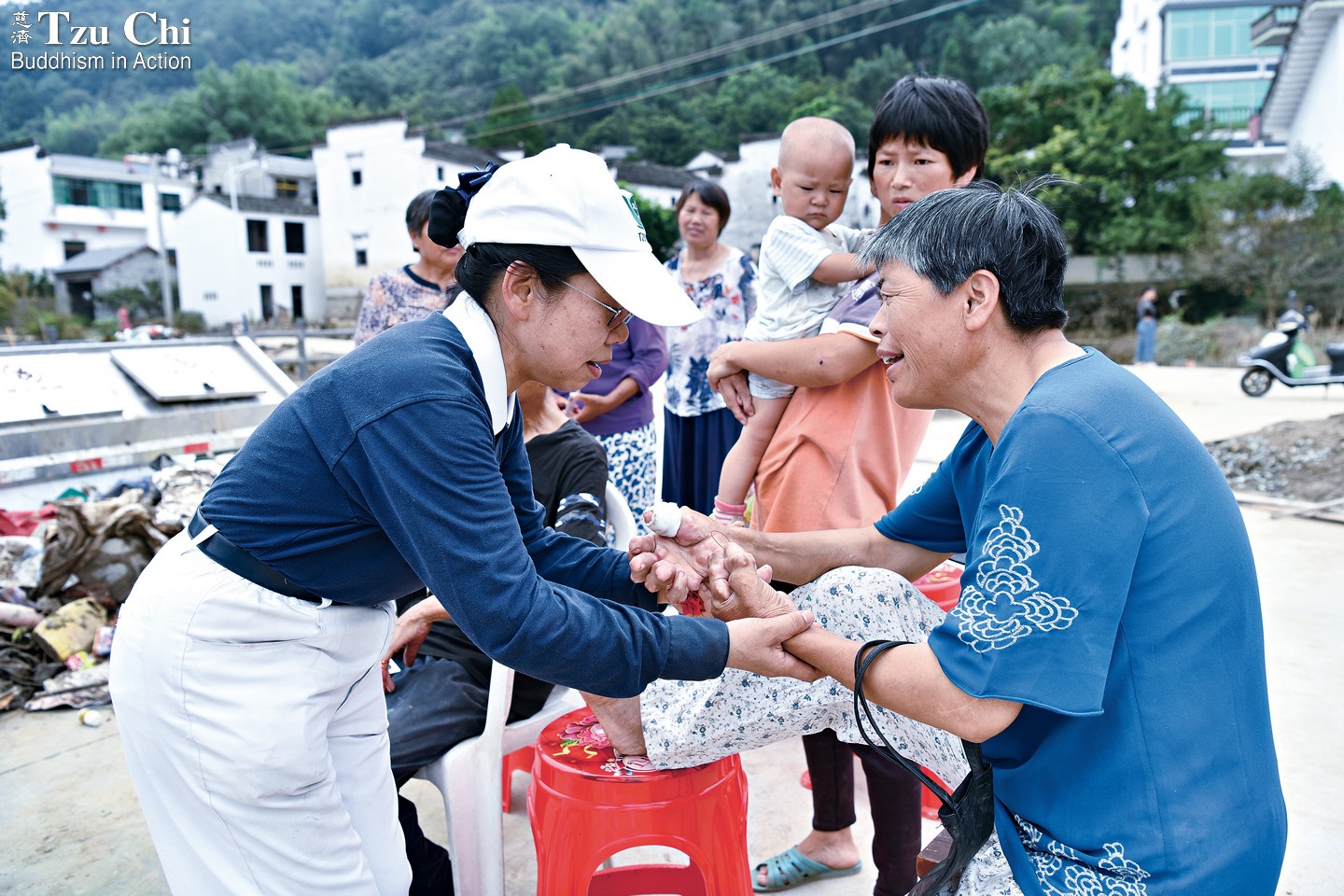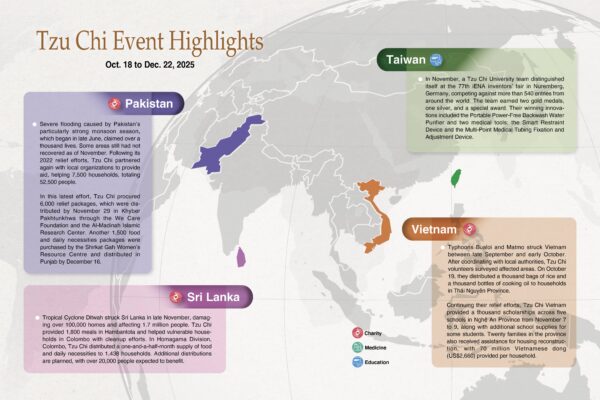By Bian Jing, Si Haizhen, Guo Lingling, and Jia Xiongying
Translated by Wu Hsiao-ting

Volunteers wade through water as they visit Tongzi County in Guizhou Province for flood relief work. BIAN JING
China entered the flood season in June this year. Torrential rains lasted for more than 40 days, triggering severe flooding in large areas of southern China, mainly around the Yangtze basin and its tributaries. By early August, over 54 million people had been affected, with more than 3.7 million people evacuated.
Tzu Chi volunteers in Sichuan, Hubei, Hunan, Anhui, Jiangxi, and other provinces quickly mobilized to assess the damage in disaster areas. Tongzi and Daozhen counties in Guizhou Province were hit by flooding five times, resulting in landslides that destroyed homes. Floodwaters breached embankments in Huangmei County in Hubei Province, affecting 16 townships. Among those townships, Dahe was hit by landslides, and Zhuogang suffered sustained flooding—farmland was submerged in water for days, ruining all the crops. Volunteers promptly purchased supplies and held distributions for victims in these areas.
The Tzu Chi Foundation started its philanthropic work in China in 1991, when eastern China was struck by massive flooding. Anhui was the first province to receive Tzu Chi volunteers from Taiwan, and the first to receive their aid. Now local volunteers in the province have taken over the responsibility of organizing emergency relief work in the area. On July 7, the Xin’an River, which flows through Anhui Province, swelled. The flooding that followed hit Shendu Township in She County hard. Volunteers from Anhui, Zhejiang, and Jiangsu provinces helped ease the plight of affected villagers by bringing them rice, cooking oil, blankets, and other daily necessities. A resident of Tongling, Anhui Province, who had received aid from Tzu Chi 29 years ago, when he was nine, joined the ranks of Tzu Chi volunteers in distributing the aid.
Tzu Chi volunteers also aided citizens in the city of Chongqing, one of the four municipalities in China under the direct administration of the central government. In Qijiang District, some riverbank houses were flooded up to the second floor. Volunteers launched emergency distrbutions of cash aid and blankets within 48 hours of assessing damage in the Qijiang and Jiangjin Districts. Cai, an older aid recipient, said to volunteers, “The floods destroyed everything I had. I was so sad I didn’t want to live. Your care for us filled me with gratitude.” She was so emotionally stirred she broke into sobs in a volunteer’s arms. She said that she would use the cash aid from Tzu Chi to pay for her grandson’s tuition, and if there was money left, she’d use it to purchase daily necessities.
The disaster areas were huge. Volunteers did their best to reach as many areas as they could. As of August 17, Tzu Chi had helped over 10,000 people in 4,457 families.

A volunteer interacts with a flood victim in Shendu Township, Anhui Province. JIA XIONGYING



